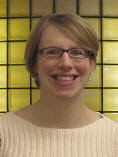New evolution in Course Management Software
"Sakai is an online Collaboration and Learning Environment. Many users of Sakai deploy it to support teaching and learning, ad hoc group collaboration, support for portfolios and research collaboration.
Sakai is a free and open source product that is built and maintained by the Sakai community. Sakai's development model is called "Community Source" because many of the developers creating Sakai are drawn from the "community" of organizations that have adopted and are using Sakai."
http://sakaiproject.org/
Thursday, November 30, 2006
Monday, November 27, 2006
8 Mashups
"While this is a simplified model (one must ask who checks the work every time to make sure it’s right, how is the code maintained over time, and so on), it’s also one of the significant motivations behind the drive for end-user mashups; applying this very same concept of task automation to daily work and life."
"How many routine tasks could we get out of our way if we had powerful task automation tools that almost anyone could use? How many one-off tasks could be automated that couldn’t possibly justify the expense of custom software development? These problem areas — automating repetitive work, and automating complex, collaborative problem solving (the tacit interactions I tend to cite so much) — are potentially ripe for enabling low-barrier tools that let us assemble solutions out of the rich landscape of services that are beginning to flourish in our organizations. This world of available services is already a vibrant ecosystem on the Web."
Read more at: http://blogs.zdnet.com/Hinchcliffe/?p=63
"How many routine tasks could we get out of our way if we had powerful task automation tools that almost anyone could use? How many one-off tasks could be automated that couldn’t possibly justify the expense of custom software development? These problem areas — automating repetitive work, and automating complex, collaborative problem solving (the tacit interactions I tend to cite so much) — are potentially ripe for enabling low-barrier tools that let us assemble solutions out of the rich landscape of services that are beginning to flourish in our organizations. This world of available services is already a vibrant ecosystem on the Web."
Read more at: http://blogs.zdnet.com/Hinchcliffe/?p=63
Tuesday, November 14, 2006
HLA Conference 2006
I just returned from the Hawaii Library Association Conference (http://ohana.chaminade.edu/hla/index.html).
The conference was great--good speakers, beautiful scenery, very very well run and lots of web 2.0.
I presented on using blogs, myspace, and IM for library outreach. We did an pre-conference so it included a hands-on portion--that unfortunately turned out to be too short but I was interesting to see librarians use some of these technologies for the first time. I think the transition from content provider to content creator is fundamental--and often under appreciated as we move the Library 2.0...
The conference was great--good speakers, beautiful scenery, very very well run and lots of web 2.0.
I presented on using blogs, myspace, and IM for library outreach. We did an pre-conference so it included a hands-on portion--that unfortunately turned out to be too short but I was interesting to see librarians use some of these technologies for the first time. I think the transition from content provider to content creator is fundamental--and often under appreciated as we move the Library 2.0...
World Usability Day
"Make yourself useful on the 14th of November 2006. Celebrate usability around the world."
A truely under appreciated holiday....day off anyone?Friday, November 03, 2006
Web Science
"The Massachusetts Institute of Technology and the University of Southampton in Britain plan to announce today that they are starting a joint research program in Web science.
Web science, the researchers say, has social and engineering dimensions. It extends well beyond traditional computer science, they say, to include the emerging research in social networks and the social sciences that is being used to study how people behave on the Web. And Web science, they add, shifts the center of gravity in engineering research from how a single computer works to how huge decentralized Web systems work."
“The Web isn’t about what you can do with computers,” Mr. Berners-Lee said. “It’s people and, yes, they are connected by computers. But computer science, as the study of what happens in a computer, doesn’t tell you about what happens on the Web.”
http://www.nytimes.com/2006/11/02/technology/02compute.html?_r=2&oref=slogin&oref=slogin
Web science, the researchers say, has social and engineering dimensions. It extends well beyond traditional computer science, they say, to include the emerging research in social networks and the social sciences that is being used to study how people behave on the Web. And Web science, they add, shifts the center of gravity in engineering research from how a single computer works to how huge decentralized Web systems work."
“The Web isn’t about what you can do with computers,” Mr. Berners-Lee said. “It’s people and, yes, they are connected by computers. But computer science, as the study of what happens in a computer, doesn’t tell you about what happens on the Web.”
http://www.nytimes.com/2006/11/02/technology/02compute.html?_r=2&oref=slogin&oref=slogin
Wednesday, November 01, 2006
Subscribe to:
Posts (Atom)

